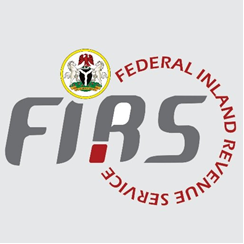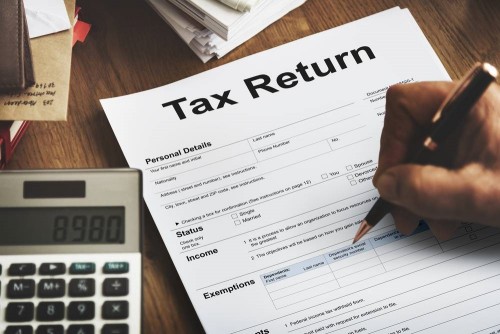SUMMARY
On April 15, 2021, the Federal Inland Revenue Service (“FIRS”) issued a public notice (the “Notice”) by which it directed all approved enterprises operating within Nigeria’s Export Processing and Oil & Gas Free Zones (the “Free Zones”) to: (i) file income tax returns for 2021 and subsequent years of assessment; and (ii) compute income tax and pay the tax due, if any.
The returns are required to be filed in the manner and time specified in the Companies Income Tax Act (“CITA”). The Notice was issued pursuant to the provisions of sections 58 and 59 of the Finance Act 2020 (the “Finance Act”), which amended section 18(1) of the Nigeria Export Processing Zones Authority Act (“NEPZA Act”) and the corresponding section 18(1) of the Oil and Gas Export Free Zone Act (“OGEFZA Act”); and by so doing now subjects Free Zone operators to the provisions of section 55(1) of the CITA, which imposes an obligation to file returns and provisional accounts. Failure to comply with the statutory obligation to file returns attracts penalties prescribed in the CITA and the Federal Inland Revenue Service (Establishment) Act 2007 (“FIRS Act”).

Certain FIRS tax offices listed below, are designated in the Notice for the purpose of returns filing compliance by Free Zone operators:
- Enterprises operating in the South-South region are to file returns with the Port Harcourt, Medium Tax Office (“MTO”);
- Enterprises operating in the South-East region are to file returns with the Enugu, MTO;
- Enterprises operating in the South-West region are to file returns with the Ibadan, MTO;
- Enterprises operating in the North-East and North-West regions are to file returns with the Kano, MTO;
- Enterprises operating in Lagos State are to file returns with the Lagos Island, MTO; and
- Enterprises operating in the North-Central region and the Federal Capital Territory, Abuja are to file returns with the Abuja MTO.
COMMENTARY
Free Zones designated by order of the President, upon the recommendation of the Nigeria Export Processing Zones Authority (“NEPZA”), pursuant to the provisions of the NEPZA Act, and those so designated by the President, and operating in the Oil and Gas Export Free Zones, and subject to the supervision and control of the Oil and Gas Export Free Zone Authority (“OGEFZA”), enjoy several tax and other related incentives. For example, pursuant to section 8 of the OGEFZA Act and paragraph 5(1) of the Oil and Gas Export Free Zone Regulations 2019 (the “OGEFZA Regulations”), approved enterprises operating within Free Zones in the oil and gas industry are exempt from all federal, state, and local government taxes, levies, rates, and duties in connection with operations carried on within such Free Zones.
Further, paragraph 5(2) of the OGEFZA Regulations provide that a licensee within Free Zones in the oil and gas sector shall be exempt from providing, filing or submitting any documents or information (which would have been required of them but for the application of the OGEFZA Regulations), for the purpose of assessing or charging taxes, levies, rates, or duties. In addition, section 18(1)(d) and (f) of the OGEFZA Act provide that approved enterprises licensed to carry on business within Free Zones in the oil and gas sector shall be entitled to several incentives, including exemption from providing import or export licences and entitlement to rent-free land at construction stage. Specifically, Regulation 6(1) of the OGEFZA Regulations provide that licensees shall be entitled to exemption from: (i) federal, state, and local government taxes, levies, and rates; (ii) regulations pertaining to taxes, levies, duties, and foreign exchange; (iii) customs duties and associated fees; and (iv) Value Added Tax (“VAT”) on all imported products in relation to approved activities, including VAT on site construction activities and on locally produced materials, equipment, and services.
To ensure transparency and monitor the activities of operators within Free Zones, sections 58 and 59 of the Finance Act, which amended sections 18(1)(a) of both the NEPZA Act and the OGEFZA Act (which defined and preserved the tax exemption regime) provide, and now require all companies registered and operating within Free Zones to comply with the provisions of section 55(1) of the CITA and render returns to the FIRS in the prescribed manner and, in the event of default, be exposed to the noncompliance penalties prescribed in both the CITA and the FIRS Act.
Even though, the provisions of the Finance Act safeguard the tax exemption status of Free Zone enterprises, they are now required and obligated to file tax returns.

In our view, the Notice is an administrative instrument by which the FIRS seeks to give life to the new tax obligation now imposed on Free Zone enterprises. Further, we note that the amendments to the OGEFZA Act and the NEPZA Act under the Finance Act, have now aligned Free Zones with section 55(1) of the CITA; which already covers “every company, including a company granted exemption from incorporation, whether or not a company is liable to pay tax under the Act”. It has also aligned Free Zone operators with the provisions of part 6 of NEPZA’s Investment Procedures, Regulations and Operational Guidelines for Free Zones in Nigeria 2004 (“NEPZA Regulations”), which oblige companies registered and operating within Free Zones to remit taxes for transactions within the customs territory, and also file tax returns with the FIRS in that regard. Similarly, paragraph 15(a) of part 2 of the NEPZA Regulations provide that goods released into the customs territory shall be classified as imports and shall be subject to all applicable taxes, duties, and levies.
The development and new dispensation aligns with the decision of the Tax Appeal Tribunal (“TAT”) in the celebrated case of Nigerdock Nigeria Plc FZE v FIRS, where the appellant, a Free Zone operator approved by the NEPZA, was alleged to have provided services to entities outside of the Free Zone for a period of five (5) years, leading to the FIRS raising assessment on the appellant’s income deemed to have been earned from services provided outside the Free Zone. The appellant’s objection to the assessment eventually went to the TAT for determination. The TAT held that the tax exemption provided under sections 8 and 18(1) of the NEPZA Act would apply and be available to a Free Zone operator, only where its operations are exclusively executed within the confines of the Free Zone. It further held that if the Free Zone operator carries on fee-earning activities outside the Free Zone, it would be liable to pay taxes applicable to such activities outside the Free Zone.
In our view, the amendments introduced under the Finance Act to the OGEFZA Act and the NEPZA Act, seek to maintain the sanctity of Free Zones by putting measures in place to ensure that the objectives of creating Free Zones are actualized. This prevents Free Zone operators from abusing the tax exemption regime granted under the statutes. We reasonably believe that the requirement for Free Zone operators to file tax returns, henceforth, will enable the FIRS effectively monitor the activities of Free Zone operators for the purpose of ascertaining their tax liability in respect of transactions done outside the Free Zones.
The Grey Matter Concept is an initiative of the law firm, Banwo & Ighodalo.
DISCLAIMER: This article is only intended to provide general information on the subject matter and does not by itself create a client/attorney relationship between readers and our Law Firm or serve as legal advice. We are available to provide specific advice on the subject of this Alert, as may be required.











